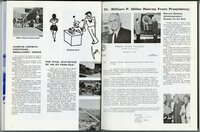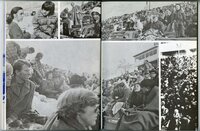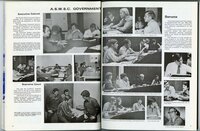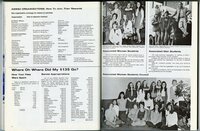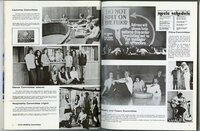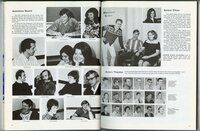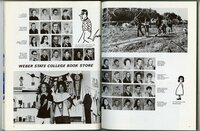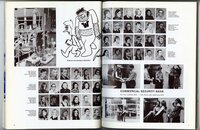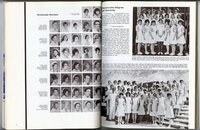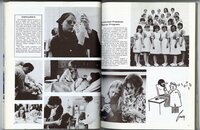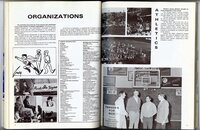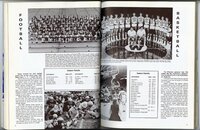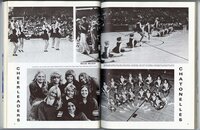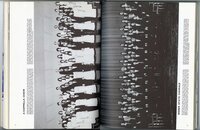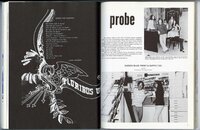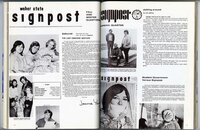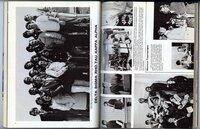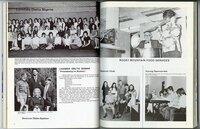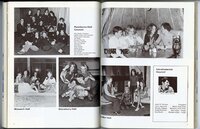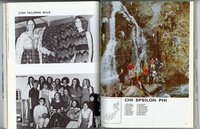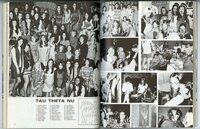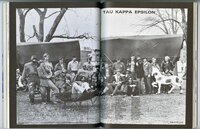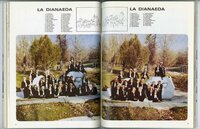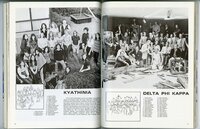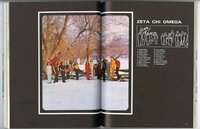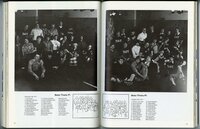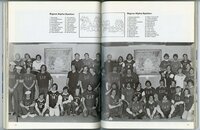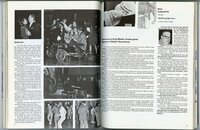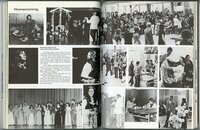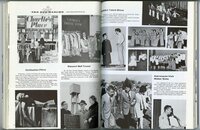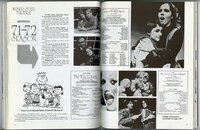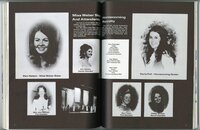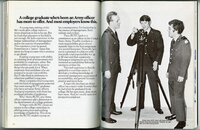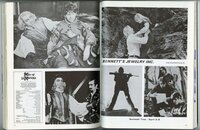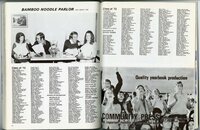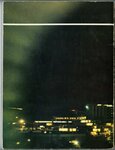| Title |
1972 Acorn |
| Creator |
Weber State College |
| Description |
A collection of yearbooks from Weber State College which comprise the years 1964 to 1982. Included in the yearbook are photographs of students, class officers, faculty, athletics, and departments within the college. It also contains sections on the clubs, activities, organizations, and advertisements from local businesses. Publication ceased 1973; 1975-81. 1982 is the last publication of the Acorn. |
| Subject |
Student activities; Administration; Advertising; Athletics; Business; Humanities; Life sciences; Mathematics; Ogden (Utah); Physical education and training; Clubs; Social sciences; College student government; Technical education; Yearbooks |
| Digital Publisher |
Stewart Library, Weber State University, Ogden, Utah, USA |
| Date Original |
1972 |
| Date |
1972 |
| Date Digital |
2009 |
| Temporal Coverage |
1905; 1906; 1907; 1908; 1909; 1910; 1911; 1912; 1913; 1914; 1915; 1916; 1917; 1918; 1919; 1920; 1921; 1922; 1923; 1924; 1925; 1926; 1927; 1928; 1929; 1930; 1931; 1932; 1933; 1934; 1935; 1936; 1937; 1938; 1939; 1940; 1941; 1942; 1943; 1944; 1945; 1946; 1947; 1948; 1949; 1950; 1951; 1952; 1953; 1954; 1955; 1956; 1957; 1958; 1959; 1960; 1961; 1962; 1963; 1964; 1965; 1966; 1967; 1968; 1969; 1970; 1971; 1972; 1973; 1974; 1975; 1976; 1977; 1978; 1979; 1980; 1981; 1982 |
| Item Size |
12 x 9 inch |
| Medium |
yearbooks |
| Item Description |
Paperback book with a image of Weber State College at night along with the text "Weber State College". The book contains 144 pages. |
| Spatial Coverage |
Weber County, Utah, United States, http://sws.geonames.org/5784440 |
| Type |
Text; Image/StillImage |
| Conversion Specifications |
TIFF images were scanned with an Epson Expression 100000XL scanner. JPG and PDF files were then created for general use. |
| Language |
eng |
| Rights |
Public Domain. Courtesy of University Archives, Stewart Library, Weber State University |
| Source |
LD 5893.W55 A25 1972 Weber State University Archives |
| Format |
application/pdf |
| ARK |
ark:/87278/s6ka4th3 |
| Setname |
wsu_year |
| ID |
106187 |
| Reference URL |
https://digital.weber.edu/ark:/87278/s6ka4th3 |





